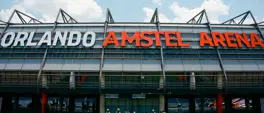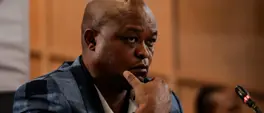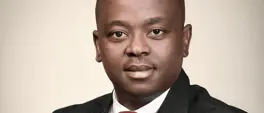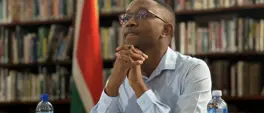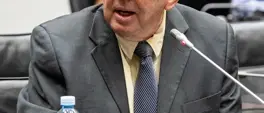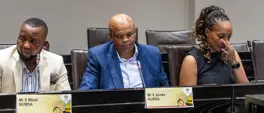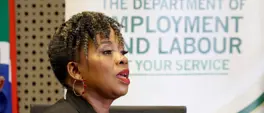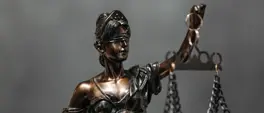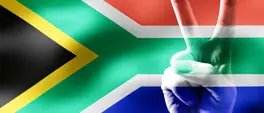PROF ZONDI: Despite early controversy, Ramaphosa’s National Dialogue signals a path forward
Prof Siphamandla Zondi
21 August 2025 | 17:02'The sixth administration elected with great hope has delivered failures and disappointments while promising positive change.'
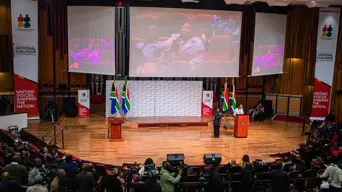
The national convention held at the University of South Africa (UNISA)’s main campus in Pretoria on 16 August 2025. Picture: Simphiwe Nkosi/EWN
The idea of a National Dialogue to get the nation talking about things that matter for the present and the future has been on our lips for a while now. It was first suggested as a Convention for a Democratic South Africa (CODESA) 2 over 15 years ago. It was also suggested as an economic CODESA in the past, but there was no urge to convene it.
Now that President Cyril Ramaphosa has kick-started the process, there is contestation about the process and approach to this. The controversies preceding the 15-16 August National Convention put these differences in the open for all to see.
First, the legacy foundations representing the legacies of major political figures in South African history announced a dispute within the preparatory team and pulled out of the convention. In a joint letter, these entities, including the Thabo Mbeki Foundation, the Ahmed Kathrada Foundation, Steve Biko Foundation and the FW De Klerk Foundation, protested against a government takeover of what was announced to be a citizen-led national dialogue.
As a result of this alleged government takeover, the foundations said, there was a rush to convene the convention before all was ready for this and decisions to undertake emergency procurement in possible violation of the Public Finance Management Act (PFMA).
The government, through the Presidency, disputed this, and the president convened the preparatory task team to confirm that there was no merit to the foundations’ concerns.
Indeed, the National Convention happened with much fanfare and produced some notable decisions. The convention went off quite smoothly and signalled a thoughtful process. It seemed the foundations’ decisions had not harmed the process and signalled that they do not have as much influence as some thought. But their decision had put a damper on the idea and caused many questions to be raised, including in talk shows, on social media and other public exchanges.
Of course, a discussion of this nature could not avoid displaying the agony of many about the failure of the post-apartheid transition to deliver a better life for all. This is the failure to overcome poverty and reduce unemployment. The transition has not been successful in reducing inequalities according to race, class, gender and other dimensions. The beautiful post-apartheid democracy has been marked by a long period of lower economic growth, growing crime and corruption, fragmentation and disillusionment in the population.
The sixth administration elected with great hope has delivered failures and disappointments while promising positive change.
Couple this with a growing population, including illegal immigration swelling the numbers of the poor and climate change effects, the crisis keeps deepening, and despair is growing. This was evident in the discussions and submissions at the national convention.
Some of the areas of consensus achieved are significantly important for moving forward. The decision to give a strong focus to discussions of problems and solutions in the economy towards an inclusive economy and livelihoods is a noble one. This subject is closely tied to the matter of land reform, agrarian transformation and food security. This was elevated into a priority on its own. We hope the discussion will reflect on why we have failed to achieve what was set out in the National Development Plan about this.
Crime and corruption were ranked the second most important priority by virtue of public concern and the scale of it as a national crisis. On that score, the scourge of gender-based violence and femicide (GBVF) stood out as a matter for focused attention as the dialogue begins. The subject of education and health is framed as about winning the future.
The discussions elevated the State as a subject of discussion because of its association with problems and its key role in managing many solutions to national crises. Indeed, the National Development Plan (NDP), too, made building a capable developmental State a key task of the nation back in 2012. If discussions clarify what has been achieved and what has not been achieved, and why it would have helped the country move forward.
The subject of values and culture as a matter critical for rebuilding the social fabric on which the nation and the State are built was made prominent by civil society voices worried that failures were not incidental but systemic. The NDP had enjoined us to work hard to achieve social cohesion, a sort of renewal for the nation's soul. The convention re-emphasised the vagaries of inter-generational trauma and called for healing. This dialogue could help us find out how progress can be achieved.
In the final analysis, what is said and recommended in response to growing poverty and inequality will be a measure by which the success of the dialogue will be judged. All these issues were interlinked. The attainment of one relies on the achievements in other areas.
It seems that the National Dialogue is now back on track.
But there are pointers to consider, which, when applied, would improve the process. The first is that it is to be expected that the National Dialogue will not be a smooth, quiet and united discussion but could have tough edges as stakeholders jostle for the nation's soul.
It could even be messy and chaotic, without being a disaster. It can be dogged by controversy without collapsing.
Professor Siphamandla Zondi
Director: Institute for Pan-Africa Thought & Conversation; and co-director: Institute for Global African Affairs
Professor: Department of Politics and International Relations
Get the whole picture 💡
Take a look at the topic timeline for all related articles.
